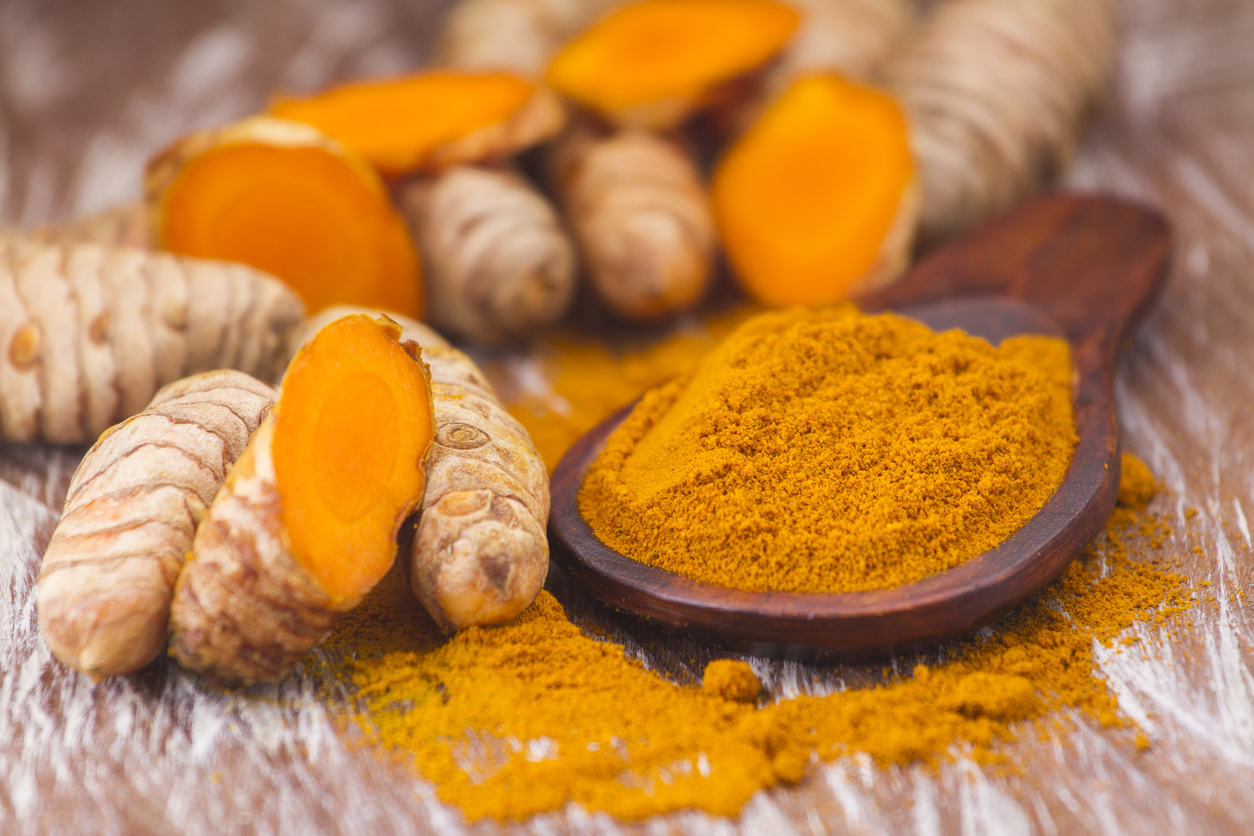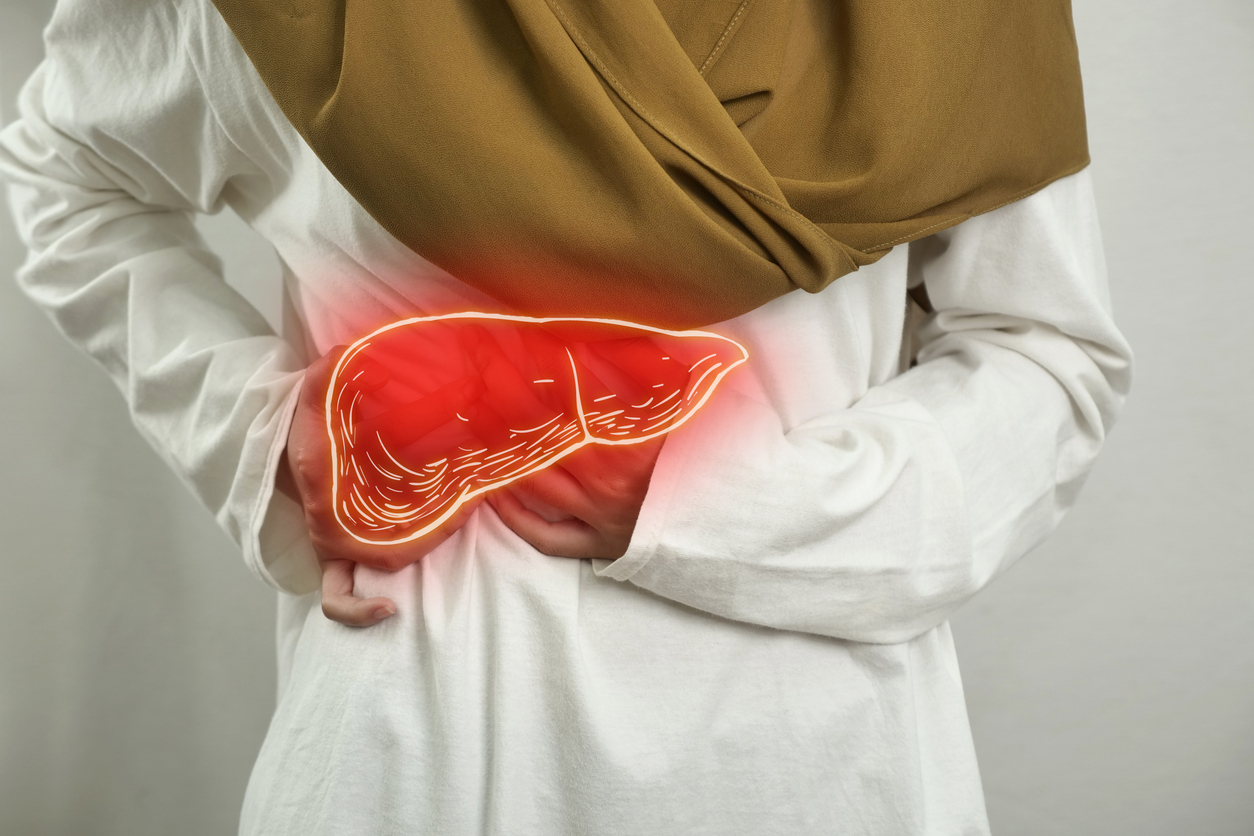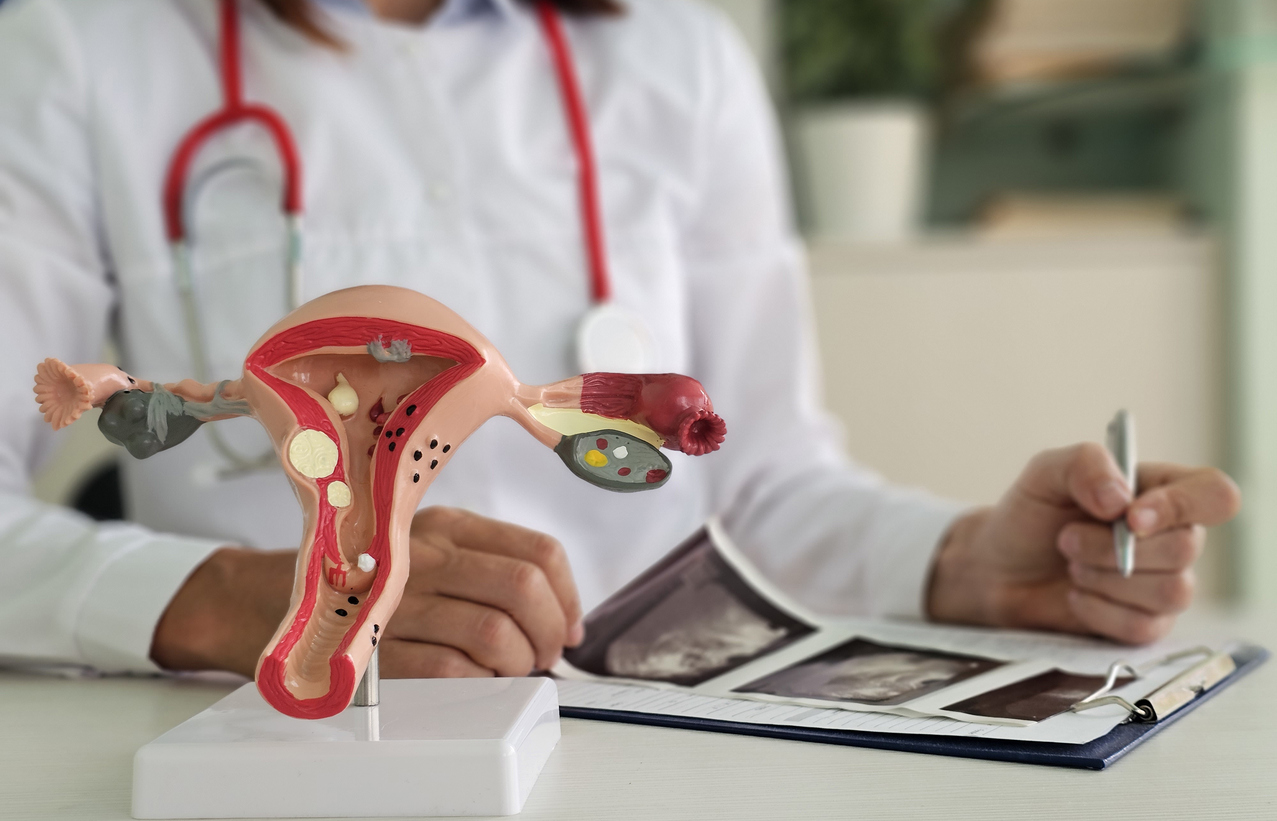2025-11-04
Curcumin in prostate cancer: a promising therapy supported by nanotechnology
Oncology
By Carolina Lima | Published on November 4, 2025 | 3 min read
Prostate cancer (PCa) remains one of the most prevalent cancers in men worldwide, often progressing to treatment-resistant stages. In recent years, curcumin—a polyphenolic compound derived from Curcuma longa has gained attention for its multi-targeted anticancer properties. A recent systematic review published in BMC Cancer (2025) highlights preclinical evidence on how curcumin acts at the molecular level in PCa and how nanotechnology improves its therapeutic potential.
Curcumin modulates several key pathways in PCa:
In preclinical models, curcumin consistently triggers apoptosis, halts the cell cycle (at G1 or G2/M) and reduces cancer cell migration and invasion by suppressing epithelial–mesenchymal transition (EMT) —a process where cancer cells lose their epithelial traits and gain mesenchymal features, increasing motility and invasiveness. Curcumin also inhibits angiogenesis and disrupts cancer metabolism by blocking PDHA1, a critical enzyme for mitochondrial energy production.
One of the major challenges in curcumin therapy is its poor solubility and bioavailability. Nanotechnology offers solutions :
Curcumin’s efficacy is further amplified when combined with:
Curcumin demonstrates powerful, multi-targeted anticancer activity in prostate cancer, acting on key pathways such as PI3K/Akt/mTOR, NF-κB, AR signaling, and EMT —all while maintaining a low toxicity profile.
But to translate this potential into real patient benefit, future research must refine its formulation improving bioavailability and identify which patients are most likely to respond. Rigorous clinical trials are essential to validate its safety and efficacy.
Thanks to its broad-spectrum activity and excellent safety record, curcumin may also be considered as a preventive dietary supplement, particularly for men at increased risk of prostate cancer. However, its use should be guided by healthcare professionals and supported by further clinical evidence.
With its versatility and compatibility with existing therapies, curcumin stands out as a natural compound that could make prostate cancer treatment more effective, less toxic, and more patient-centered.
About the Author – Carolina Lima
Carolina is a specialist in Anaesthesiology with a deep passion for learning and sharing medical knowledge. Dedicated to advancing the field, Dr. Lima strives to bring fresh, evidence-based insights to the medical community. Viewing medicine not merely as a profession but as a lifelong journey of continuous learning, Dr. Lima is committed to making complex information clear, practical, and useful for healthcare professionals around the world.
Prostate cancer (PCa) remains one of the most prevalent cancers in men worldwide, often progressing to treatment-resistant stages. In recent years, curcumin—a polyphenolic compound derived from Curcuma longa has gained attention for its multi-targeted anticancer properties. A recent systematic review published in BMC Cancer (2025) highlights preclinical evidence on how curcumin acts at the molecular level in PCa and how nanotechnology improves its therapeutic potential.
Molecular targets and mechanisms
Curcumin modulates several key pathways in PCa:
- PI3K/Akt/mTOR axis, a key driver of prostate cancer growth, particularly in PTEN-deficient tumours, where the PTEN gene is lost or inactivated. PTEN normally acts as a tumour suppressor, so its absence leads to hyperactive signalling. Nanoparticle curcumin formulations, such as Theracurmin®, effectively suppresses this pathway, reducing cell proliferation.
- NF-κB: when is overactive, promotes the expression of pro-inflammatory cytokines like TNF-α, fostering a tumour-supportive environment and enabling cancer cells to resist apoptosis. Curcumin downregulates NF-κB and these cytokines, promoting apoptosis and reducing tumour-promoting inflammation.
- Androgen receptor (AR), essential for PCa growth in both hormone-sensitive and therapy-resistant stages. AR is activated by androgens like testosterone and dihydrotestosterone. Curcumin and its derivatives, such as H10, inhibit enzymes like 17β-HSD3 (necessary in testosterone biosynthesis) lowering androgen levels and AR activity, which suppresses tumor growth and PSA expression. This makes curcumin promising adjunct to androgen deprivation strategies.
- Apoptosis and Necroptosis: curcumin activates both intrinsic (Bax, caspase-3) and extrinsic (DR4/DR5) apoptotic pathways and induces necroptosis in acidity-adapted PCa cells—cells conditioned to survive in a tumour-mimic microenvironment. This dual cell-death mechanism targets cancer cells while sparing healthy tissue.
Anti-metastatic and metabolic effects
In preclinical models, curcumin consistently triggers apoptosis, halts the cell cycle (at G1 or G2/M) and reduces cancer cell migration and invasion by suppressing epithelial–mesenchymal transition (EMT) —a process where cancer cells lose their epithelial traits and gain mesenchymal features, increasing motility and invasiveness. Curcumin also inhibits angiogenesis and disrupts cancer metabolism by blocking PDHA1, a critical enzyme for mitochondrial energy production.
Nanotechnology: boosting bioavailability
One of the major challenges in curcumin therapy is its poor solubility and bioavailability. Nanotechnology offers solutions :
- Theracurmin®: a nanoparticle formulation that improves bioavailability over 40-fold.
- Dextran-curcumin nanoparticles: Increase ROS production which promotes oxidative stress and cancer cell death while blocking EMT.
- Scorpion venom-conjugated phytosomes: Amplify apoptosis and mitochondrial dysfunction.
- PLGA-based nanoparticles: More effectively block steroid biosynthesis and androgen production than free curcumin.
Synergistic therapies and photodynamic potential
Curcumin’s efficacy is further amplified when combined with:
- Chemotherapeutics: docetaxel and cisplatin enhance apoptosis and tumour suppression.
- Natural compounds: quercetin and carnosic
acid synergize with curcumin to modulate ROS, NF-κB, and MAPK pathways.
Light irradiation: boosts curcumin’s cytotoxicity at ultralow doses, supporting its role in photodynamic therapy.
Conclusion: a safer, smarter ally in prostate cancer care
Curcumin demonstrates powerful, multi-targeted anticancer activity in prostate cancer, acting on key pathways such as PI3K/Akt/mTOR, NF-κB, AR signaling, and EMT —all while maintaining a low toxicity profile.
But to translate this potential into real patient benefit, future research must refine its formulation improving bioavailability and identify which patients are most likely to respond. Rigorous clinical trials are essential to validate its safety and efficacy.
Thanks to its broad-spectrum activity and excellent safety record, curcumin may also be considered as a preventive dietary supplement, particularly for men at increased risk of prostate cancer. However, its use should be guided by healthcare professionals and supported by further clinical evidence.
With its versatility and compatibility with existing therapies, curcumin stands out as a natural compound that could make prostate cancer treatment more effective, less toxic, and more patient-centered.
Read next: Omega-3 fatty acids: a nutritional lever against prostate cancer
About the Author – Carolina Lima
Anaesthesiology specialist
Carolina is a specialist in Anaesthesiology with a deep passion for learning and sharing medical knowledge. Dedicated to advancing the field, Dr. Lima strives to bring fresh, evidence-based insights to the medical community. Viewing medicine not merely as a profession but as a lifelong journey of continuous learning, Dr. Lima is committed to making complex information clear, practical, and useful for healthcare professionals around the world.

Last press reviews
Liver, sugar, and pills: who's in control?

By Ana Espino | Published on February 4, 2026 | 3 min read<br>
Endometrial cancer: Is PARP bringing new hope?

By Ana Espino | Published on February 3, 2026 | 3 min read<br>
